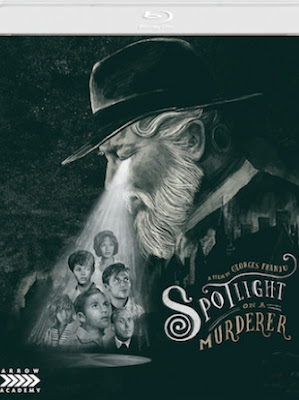Der Mann aus dem Eis is the German title for ICEMAN, and as of now, that's the only way you'll find the film on the IMDB, since that site has not seen fit to update its title of the movie. After a very limited North American theatrical release this past mid-March, the movie arrives on DVD and digital streaming this week, and it's definitely worth a watch -- for both its raw and riveting revenge-set plot and its unusually fine cinematography, as gorgeous to view as it is appropriate and compelling.
The cinematography here is from Jakub Bejnarowicz, while the writing and direction come via Felix Randau (shown at left), a name new to TrustMovies but one we're sure to hear from again soon. Herr Randau's movie begins in what I believe is known as the Chalcolithic time period or Copper Age, some 5,000 years ago, as agriculture and animal husbandry were spreading from Asia to Europe and everything from language to religion was exceedingly primitive. We see what looks like a couple of one-room, made-of-wood huts and a very small community of folk who seem to live and perform as one large family.
In the first scene, a man and woman fuck, as small children run about the hut and a neighbor enters to announce something that stops the sex midway, after which the apparently alpha male goes off to hunt. Language seems minimal and is not translated via subtitles at all during the movie. Not to worry: You'll have no trouble following the story because, very soon after, three males enter the scene to kill everyone (children included), steal what appears to be an important religious icon, and then set fire to the entire community.
The fire is seen from afar by our alpha male, but by the time he can get back, all hope and life are gone. His search for the three men and his need for vengeance seem to be as much about that religious icon as about the killings, and off he goes on a road trip that lasts the remainder of the film.
If this sounds at all predictable and obvious, Iceman turns out to be more beautiful and surprising -- due to the extraordinary scenery constantly captured and the oddly occuring moments of quiet humanity found in our "hero" and others -- than it is a somewhat typical revenge thriller.
What happens along the way helps keep the film paced very well, with the quiet scenes nicely threaded among the more actionful. Performances, which require the cast to excel at playing early humanity, are all first-rate; I doubt you'll grouse about any of them, with especial kudos to leading actor, Jürgen Vogel (above), who is onscreen almost constantly and proves up to everything -- action to acting -- asked of him.
Among the few female characters, Susanne Wuest (above) registers for a moment or two early on, while the still-manages-to-be-glamorous Franco Nero (below) pops up, too, in a small but pivotal role. But it is almost entirely the rough-hewn plot, smart pacing and surprisingly real-seeming look at this unusual time period -- together with the eye-popping scenery -- that should keep you glued to Iceman.
From Film Movement's Omnibus Entertainment division, and running 96 minutes, the movie hit DVD and digital streaming yesterday, Friday, May 24 -- for purchase and/or rental.



























































